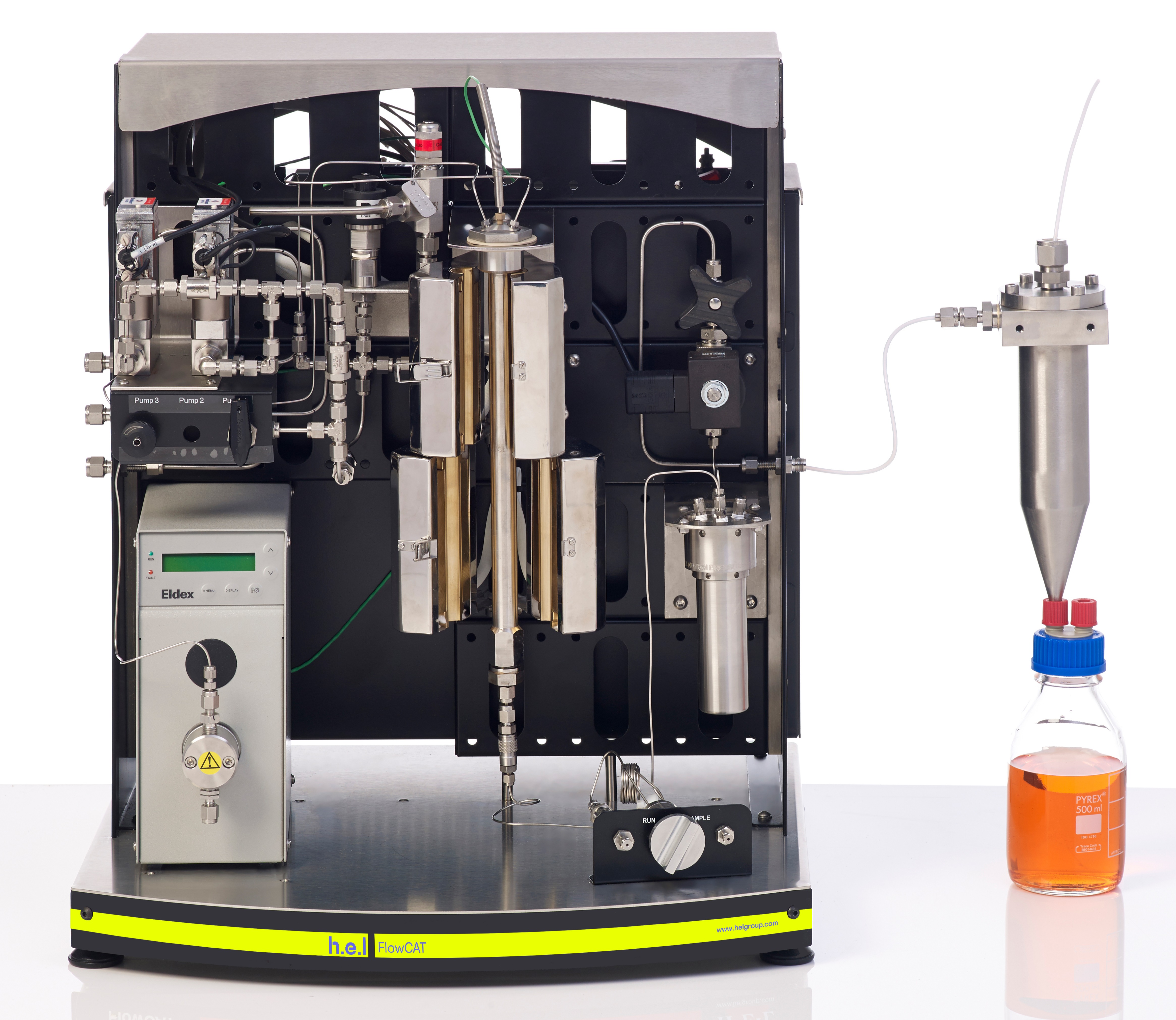What are the benefits and challenges faced when transferring batch into flow processes?
Presentations from flow and catalysis experts, discussing the benefits and challenges of transferring batch into flow process. Following the presentations, the presenters answer questions from the audience.
Do you have a question that we didn't answer?
The Presentations:
Evaluation of Catalysts in a Trickle Bed Reactor for Continuous Hydrogenations
Lee Edwards, Investigator, GSK Associate Fellow. www.linkedin.com/in/lee-edwards-b7338285/
In the pharmaceutical industry catalytic hydrogenation reactions are normally conducted in batch mode. However, these type of reactions tend to be benefit by continuous processing, as the catalytic continuous reactors offer a high catalyst loading, high pressure operation and enhanced mass transfer. This presentation will show the steps and methodology followed to develop a continuous hydrogenation process. The selection of catalyst was performed based on the chemical and physical properties. A series of batch and flow experiments were performed in order to get an understanding on the reaction mechanism and select the appropriate operating conditions to maximize product yield and minimize formation of by-products. The process was successfully demonstrated in a lab scale catalytic reactor, processing 1.2 kg of substrate and showing a consistent performance over 19 hours of operation. The lab scale process demonstration and the process understanding generated was then used to advise scale-up.
Cascade Conversion of Biomass Platform Chemicals with Multifunctional Zeolitic Materials
Dr. Russell Taylor, Lecturer in Synthetic Inorganic Chemistry & EPSRC Manufacturing Fellow at Durham University. www.dur.ac.uk/chemistry/staff/profile/?id=14184
Samuel Raynes, PhD Student, Thesis Title – Cascade Conversion of Biomass Platform Chemicals with Multifunctional Zeolitic Materials. www.linkedin.com/in/samuelraynes/
The direct transformation of ethanol to acetaldehyde is an important step in the cascade conversion of bioethanol to higher value chemicals and for the development of sustainable fuels. Herein, zinc oxide supported on alkali cation-exchanged mordenite (ZnO/M–MOR) prepared by a simple wetness impregnation method, is shown to be a selective and stable catalyst for the direct dehydrogenation of ethanol to acetaldehyde at 400 °C under continuous flow conditions. Through variation of the ZnO loading and the zeolite counter-cation (Na, K, Rb, Cs), an optimum catalyst material was identified, ZnO/Rb–MOR loaded at 3.5 wt% Zn. Acetaldehyde productivity (normalized to Zn) could be increased by over 80% and ethylene selectivity reduced to 0.9 % through simple variation of the extra-framework alkali cation. The new catalyst system shows that ZnO can be tuned to give very low ethylene selectivity and extended lifetimes in ethanol dehydrogenation to acetaldehyde which has not previously been reported.
Taming High Energy Photochemical Processes with Flow: Case Studies and Future Perspectives
Dr. Joshua Barham, Sofja Kovalevskaja Group Leader at University of Regensburg. www.linkedin.com/in/joshua-barham-77a34253/
Flow chemistry allows photochemical processes involving high energy intermediates to be tamed in a controlled and safe fashion. Recent progress on heterogeneous (liquid/gas or liquid/solid) flow chemistries involving high energy intermediates will be presented, include the syntheses of heterocyclic bicycles evolving N2, functionalization of pharmaceutical cores with O2 and the use of graphitic carbon nitride photocatalysis. Future trends and challenges in the field of photochemistry will be briefly outlined.
